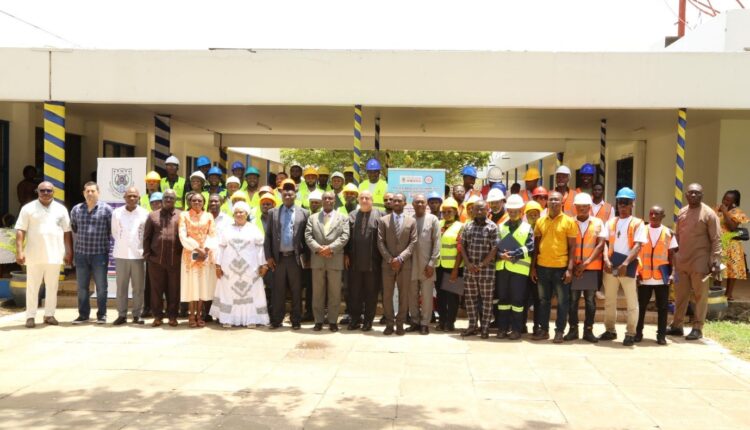In a historic milestone for gender inclusion in technical fields, six women have graduated from the National Association for Heavy-Duty Equipment Operators Ghana (NAHEOG)’s Mobile Crane and Forklift Training Programme, marking a significant breakthrough in the male-dominated heavy machinery industry.
The women were part of a 50-member cohort from across West and Central Africa who completed the intensive ten-week course at the Regional Maritime University (RMU). Their graduation is being hailed as a symbol of shifting cultural norms in technical and vocational education and training (TVET) across the region.
“These women are trailblazers. They are not only trained professionals now, but also role models who will inspire other young women to consider careers in technical and industrial fields” said Mr. Dominic Kofi Eyiah, President of NAHEOG.
The training, now in its eighth edition, was jointly organized by NAHEOG and RMU to address growing skills shortages in the industrial, construction, and maritime sectors. The programme is part of broader efforts to build a skilled and inclusive workforce across the region.
At the graduation ceremony, the six women clad in hard hats and overalls received enthusiastic applause from families, friends, and industry stakeholders. Their success signifies more than personal achievement; it represents growing momentum toward closing the gender gap in technical professions.
Mr. Eyiah used the occasion to highlight the critical role heavy-duty equipment operators play in national development.
“You are the silent builders of progress—driving the machines that shape our cities, connect our communities, and power our economy,” he said.
He also addressed pressing industry issues, including NAHEOG’s successful intervention in halting a proposed 50% increase in charges on unstuffing and assembling of heavy equipment at Ghanaian ports.
Additionally, he announced that mobile crane operators have been temporarily exempted from the Minerals Commission’s equipment tracking regulation under L.I. 2404.
To further enhance regulatory efficiency, NAHEOG is proposing the introduction of an Operator Biometric Authorization System (OBAS), which would tie equipment operation to the biometric ID of certified professionals.
Mr. Eyiah called for collaboration between the DVLA, Minerals Commission, and NAHEOG to implement the system.
The ceremony also featured remarks from Dr. Issahaque Munawaru, representing Deputy Minister of Education Hon. Clement Apaak. He emphasized the importance of expanding opportunities for young women in technical sectors, citing TVET as crucial to Africa’s economic transformation.
The Acting Vice Chancellor of RMU echoed calls for government investment in modern training equipment to make programmes like these more accessible and affordable—particularly for young women.
Looking ahead, NAHEOG announced plans to scale up its training programme in response to rising regional demand for qualified heavy machinery operators.
For the six pioneering women, the moment marked not just the completion of a course, but the beginning of careers that challenge long-standing gender norms. Their achievement is expected to inspire more young girls to explore opportunities in technical fields.
“Remain adaptable, embrace innovation, and always operate with integrity,” Mr. Eyiah told the graduates. “Never stop learning. The future of this industry depends on skilled, ethical, and forward-thinking professionals like you.”
Source: Delassie Mabel Awuku


Comments are closed.